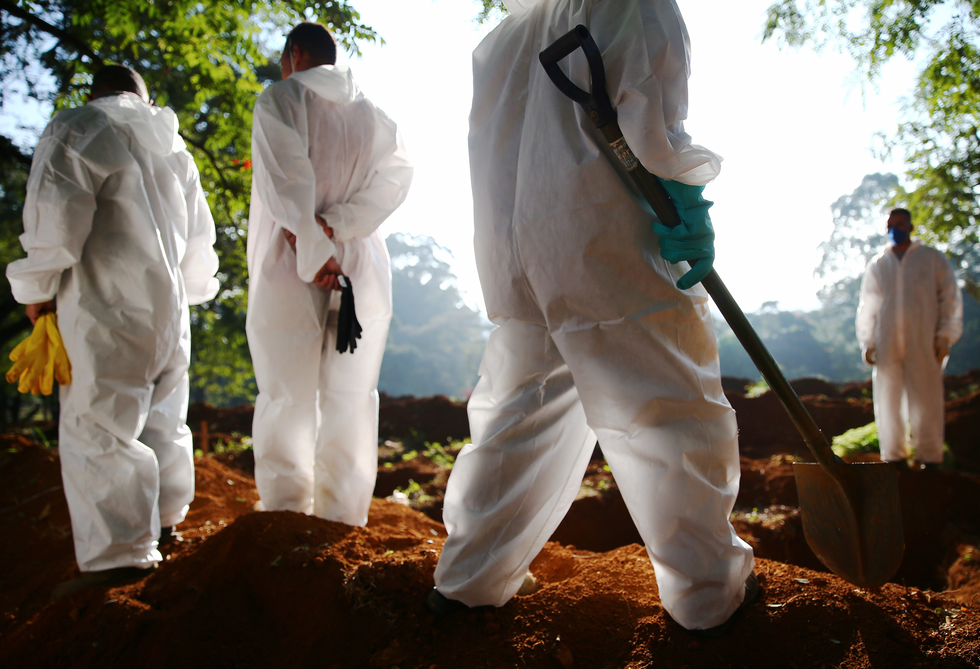Oropouche virus has been detected in humans Europe for the first time
Getty Images
Oropouche virus is transmitted to humans via midges and mosquitoes
- Oropouche virus has infected 19 humans in Europe
- The first human deaths were reported in July
- There are no vaccines or specific therapies available
Don't Miss
Most Read
Trending on GB News
A potentially deadly viral infection has spread to humans in Europe for the first time.
As of the end of July, 19 cases of Oropouche fever have been recorded, with 12 in Spain, five in Italy and two in Germany, according to the European Centre for Disease Prevention and Control.
Confirmation of the first imported cases in Europe comes after Oropouche virus caused two human deaths for the first time in Brazil on July 25.
Alarmingly, the deaths occurred in two young Brazilian women who did not have any underlying health conditions.

The sloth is a natural host for the virus, as are non-human primates and birds.
Getty Images
To date, 500,000 cases of Oropouche fever have been recorded. However, very little is known about the disease.
The virus was first detected in the village of Oropouche, in Trinidad and Tobago, in 1955. Since then, the virus has had limited circulation in parts of South America, with cases reported in settings close to forested areas, such as the Amazonas.
It is sometimes referred to as the 'sloth fever' as the slow-moving tropical mammal is a natural host for the virus, as are non-human primates and birds. It is passed on to humans via midges and mosquitoes.
Most cases of Oropouche fever are mild, with symptoms similar to dengue, including headache, muscle pain, nausea, and rash, but in some cases, the virus can also cause meningitis and potentially deadly inflammation of the brain.
Cause for concern
The current spread of Oropouche fever is concerning on two fronts.
Firstly, there are no vaccines or specific therapies available or in development for the viral infection.
Secondly, the current rate of transmission is unprecedented in terms of its speed and scale.
This is making disease experts nervous. Danny Altmann, a professor of Immunology at Imperial College London, recently told The Telegraph: "We should definitely be worried. Things are changing and may become unstoppable."
As of Aug 1, 2024, there have been 8,078 confirmed cases of Oropouche fever in South America, with cases reported in Bolivia, Brazil, Colombia, and Peru.
Oropouche fever cases have also been reported for the first time in Cuba where transmission of this vector-borne virus has become endemic.
The cases reported in Italy and Spain were limited to travellers returning from Cuba.
LATEST DEVELOPMENTS

In the ongoing outbreak, Oropouche fever has infected people living in regions far from forested areas for the first time, thus indicating that an urban cycle can exist as well.
The Lancet suggests this increased dissemination is being driven by factors like climate change, human and animal mobility and behaviour, deforestation, and land use.
Another factor is that Oropouche virus genome is formed by three RNA segments, while most insect-borne viruses consist of one.
Mutations may result from swapping of segments. These genetic changes can impact the virus’ ability to infect, cause disease, spread, evade the immune system, and develop drug resistance.








